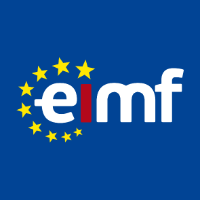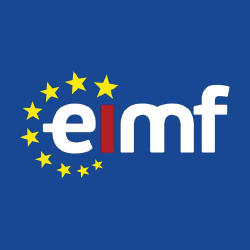
How Internal Auditors Can Recognise and Assess Fraud
- Λογιστικά/ Έλεγχος/ Φορολογικά
ΠΕΡΙΓΡΑΦΗ
Course Overview
The environment in which most companies must operate nowadays comprises, among others, the risk of fraud, a very determinative risk that management has to face when this arises.
A critical role in that effort falls on the Internal Control System for Fraud deterrence and the Internal Audit that needs to have specialized knowledge on fraud issues and the use of specialized techniques to be able to investigate it. In addition Senior Management has the duty to assess the various potential fraud risks and then establish preventive controls in all risky areas setting the Tone at the Top.
ΣΚΟΠΟΣ ΣΕΜΙΝΑΡΙΟΥ
Training Objectives
This seminar will offer participants information on numerous fraud schemes and an understanding of how to assess the fraud risk, how to recognise ”red flags”, how to investigate and write the fraud audit reports using practical and real-life examples.
Participants will learn how to adopt a more critical sceptical mind-set on their engagements, particularly during audit planning and the evaluation of audit evidence. Following the seminar, participants will approach fraud risks with a more sceptical attitude and questioning mind.
ΣΕ ΠΟΙΟΥΣ ΑΠΕΥΘΥΝΕΤΑΙ
- Professionals of all levels working in Internal Audit Units (inspectors, internal auditors, officers)
- Professionals employed in Compliance Units
- External auditors
- Audit Committee members
- Security professionals
- Risk Management analysts
- Line Managers and generally officers that are experienced in Internal Control Systems
ΠΕΡΙΣΣΟΤΕΡΕΣ ΠΛΗΡΟΦΟΡΙΕΣ
Training Outline
- Definition of Fraud
- The role and responsibilities of Internal Auditors
- – Standards for the Professional Practice of Internal Audit
- Tools for the fraud risk assessment
- Types of Fraud
- Characteristics of the perpetrator
- Common myths about fraud
- Fraud indicators
- Common fraud schemes
- – theft, misappropriation of assets, purchase and invoicing, payroll, expenses, inventory and other property
- – information theft, bribing, conflict of interest, financial statement fraud, money laundering
- Senior Management Fraud
- Electronic Fraud
- Planning the Fraud investigation
- Interviewing techniques
- Fraud audit report
- Fraud and internal control systems
- Policies and programs for the deterrence of Fraud
- Strategy for the deterrence of Fraud
- Fraud cases and control for prevention
- Presentation and analysis of a real Fraud Audit Report
Training Style
The programme is designed to deliver knowledge and enhance participants’ skills via short lectures, case-studies, practical examples, real-life simulations. Participants will also benefit from customised feedback at the end of the programme and take away the knowledge gained to be transferred to their workplace.
Most of the training’s time will be invested in analysing a real-life case study that will help participants understand how to solve problems in similar occasions.
CPD Recognition
This programme may be approved for up to 7 CPD units in Internal Audit. Eligibility criteria and CPD Units are verified directly by your association, regulator or other bodies which you hold membership.
In-house Training
For groups within the same organisation, this course may be customized to meet any specific needs and delivered in-house.
Πληροφορίες Εκπαιδευτή
Αναλυτικό Κόστος Σεμιναρίου
- € 240.00
- € 0.00
- € 45.60
- € 240.00
- € 285.60
Κοστολογικές Πληροφορίες
HRDA-approved seminars are exempted from VAT for eligible organisations applying for the HRDA subsidy. A 19% VAT will apply to seminars and participants who do not qualify for the HRDA subsidy
ΠΡΟΓΡΑΜΜΑ ΣΕΜΙΝΑΡΙΟΥ
Πέμπτη - 30 Νοε 2023
Ώρα
09:00 - 12:45
ΕΚΠΑΙΔΕΥΤΗΣ:
Κωνσταντίνος ΤριανταφυλλίδηςΤοποθεσία:
OnLine Virtual Classroom
Παρασκευή - 01 Δεκ 2023
Ώρα
09:00 - 12:45
ΕΚΠΑΙΔΕΥΤΗΣ:
Κωνσταντίνος ΤριανταφυλλίδηςΤοποθεσία:
OnLine Virtual Classroom
 Ελληνικά
Ελληνικά  English
English



 Αγγλικά
Αγγλικά
 7 ώρες
(
2 μέρες
)
7 ώρες
(
2 μέρες
)


































